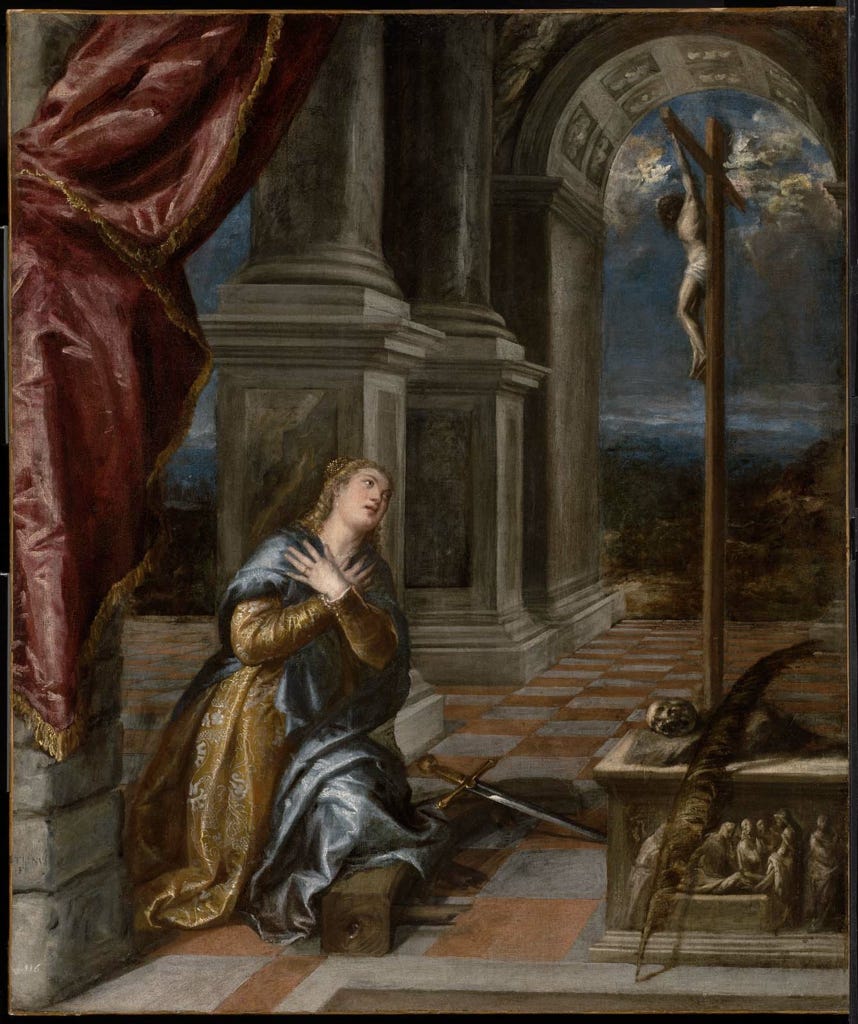Wait for the Lord, Then Follow in His Way...
Two postures of the Spiritual Life
While praying the Liturgy of the Hours Office of Readings this morning, I was struck by the antiphon "Wait for the Lord, then follow in His way."
Does any of us like to wait on anything?
Today everything is convenient and instant. Whether it’s food delivery, ordering something online (who could function without Prime), instant search on our phone, or sitting in the doctors office for an appointment that is running at least 55 minutes late. And do I have to mention the BMV or traffic at 3:30pm at 71 and Red Bank? You get the gist. Waiting for anything is annoying.
Our human consciousness is cursed with the ability to monitor time. We watch the seconds pile up into dreary minutes, knowing all we could accomplish if only things moved faster. The delay between desire and fulfillment tortures us.
Yet, today in this antiphon we are called to wait for the Lord, then follow in His way. Waiting for the Lord is the spiritual practice of attentiveness before God. Like the Desert Fathers who cultivated apatheia—an equanimity allowing for clearer discernment—we are called to open ourselves to God's grace through contemplative waiting. This waiting prepares our hearts to follow in His way, recalling the imitation of Christ, aligning our will with His. Waiting primes us for action through this grace-enabled alignment. We see this interplay between contemplation and action in St. Gregory of Nyssa’s idea of epektasis—the perpetual ascent towards God encompassing both.
Waiting and following.
St. Gregory is onto something regarding epektasis and the slow, lifelong spiritual journey of growing closer to God. It means always striving forward in our relationship with the divine. It's impossible to fully know or attain God in this life. But the very impossibility of complete closeness keeps our desire for God alive. Though we can never reach the end of the journey, the journey itself becomes a way of connecting with God. This perpetual striving gives life meaning and purpose. We are called to continually progress in virtue, wisdom and love of God. The Christian life is dynamic, not static. There is no point where we can say we have arrived spiritually.
We need divine help to make progress. In that help we are divinized in Christ—becoming more like Him through His grace. Our yearning for Him will never be fully satisfied in this life. But this dissatisfaction itself can bring us joy and lead us into deeper communion with the divine.
His divine power has granted to us all things that pertain to life and godliness, through the knowledge of him who called us to his own glory and excellence, by which he has granted to us his precious and very great promises, that through these you may escape from the corruption that is in the world because of passion, and become partakers of the divine nature. 2 Peter 1:3-4
How can we cultivate receptive readiness and active obedience in responding to God? Paul captures the interplay between God's grace and our effort: "Work out your salvation with fear and trembling; for God is at work in you" (Phil 2:12-13). Salvation is God's gift, yet we must continually press on toward the goal, "straining forward" in faithful action (Phil 3:13-14). We wait attentively for divine promptings, then follow diligently when God calls us to work. This rhythm of receptivity and response reflects the dance of grace and will in the spiritual life.
Therefore, my beloved, as you have always obeyed, so now, not only as in my presence but much more in my absence, work out your own salvation with fear and trembling; for God is at work in you, both to will and to work for his good pleasure. […]I do not consider that I have made it my own; but one thing I do, forgetting what lies behind and straining forward to what lies ahead, I press on toward the goal for the prize of the upward call of God in Christ Jesus. Philippians 2:12-13; 3:13-14
By waiting faithfully and following attentively, we ready our hearts to receive God's gifts and walk in His way—we make space for God's voice to resonate within us. It is in waiting we begin to mirror Christ himself, led forth by the Spirit into the broken and beautiful places where God calls us to pour out our lives.



